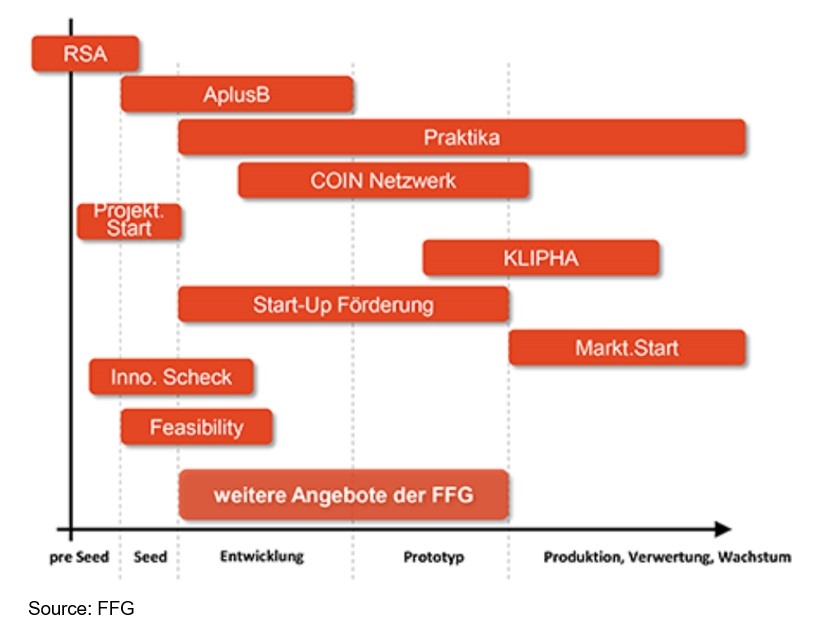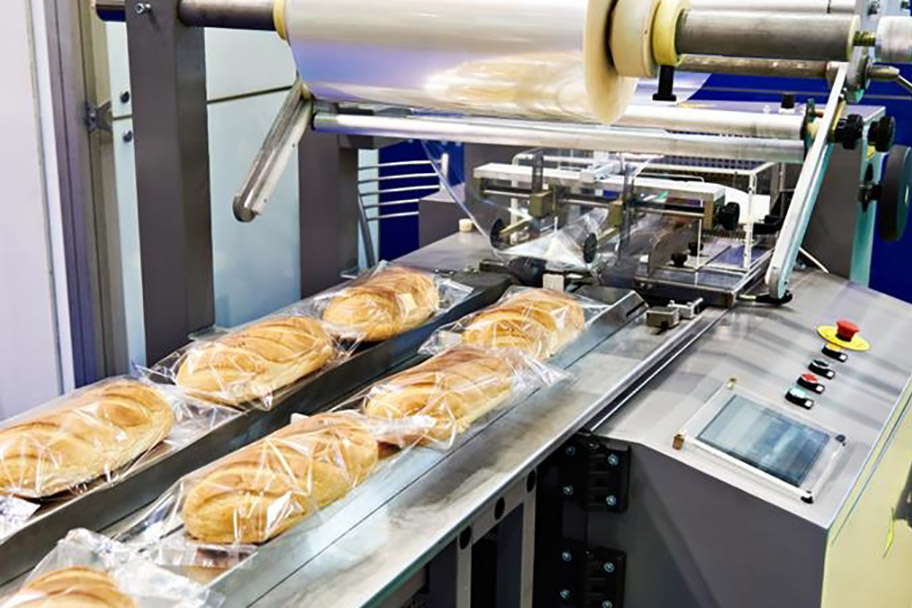Austria: Start-Up Showcasing Via Hong Kong Links
Governments around the world are introducing new measures and initiatives to support the development of the start‑up ecosystems in an effort to foster innovation and stimulate economic growth, with Austrian government is no exception.
Vienna, capital of Austria, is one of the top 40 emerging start‑up ecosystems in the world, according to the Global Startup Ecosystem Report 2025 by Startup Genome. The ecosystem is showcasing high potential to become one of the top global performers in the coming years.
Hong Kong has already established links with the Austrian start‑up ecosystem through different facilitators and programmes, fostering innovation exchange and helping Hong Kong start‑ups with international expansion.
To enhance understanding of the Austrian start‑up ecosystem and explore opportunities for collaboration between Hong Kong and Austria, HKTDC Research conducted a market research trip to Vienna in order to gather first‑hand insights from key stakeholders.
Austrian government startup acceleration initiatives
The Austrian government actively supports development in the country’s start‑up ecosystem, such as reducing administrative requirements, allocating funding, offering financial incentives and supports, and more. These measures are intended to strengthen Austria’s position as a centre for start‑ups and venture capital investment.
Federal funding schemes
The Austrian Federal Government offers different funding schemes through different agencies, providing different tailored support measures for innovative business ventures in different phase of the start‑up process:
The Austrian Research Promotion Agency (FFG), founded in 2004, is the national funding agency for industrial research and development in Austria. As a "one‑stop shop" offering a diversified and targeted programme portfolio, the FFG gives Austrian businesses and research facilities quick and uncomplicated access to research funding. FFG provides a wide range of funding schemes and programmes to support ventures at different stages.

Austria Wirtschaftsservices (aws), the Austrian federal promotional bank, is another cornerstone of Austria’s start‑up ecosystem, offering a wide range of support schemes tailored to start‑ups at various stages of development. aws provides schemes like the First Incubator, pre‑seed and seed‑financing, the Interim Management Programme, guarantees and loans, among other things. Since its establishment in 2002, about 33,000 projects have been supported, with about €879 million of aws funding being allocated.
Start-up promotion act
In 2024, Austria implemented the Start-Up Promotion Act (Start-Up-Förderungsgesetz), with key features such as introducing an alternative form of tax benefit for employee shareholdings, which is common for start‑ups to retain employees. Under this act, the non‑cash benefit from free or nominal‑value shares granted to employees is not taxed at the time of allocation. Instead, taxation is deferred until specific events occur, such as sale of shares or employment termination. The act also simplifies the share transfer process and provides clarity on taxation, with 75% of the exit proceeds being taxed at a fixed rate of 27.5%, and only the remaining 25% at the progressive tax rate, making employee share ownership more appealing.
Flexible Company Act
Introduced in 2024, The Flexible Company Act (FlexCo) offers a hybrid legal structure tailored for early‑stage ventures. Combining elements of a private limited company (GmbH) and public limited company (AG), it lowers the minimum share capital and minimum initial contribution requirement, making company formation more accessible. It provides more flexibility in capital raising, share issuance, employee stock option plans, and transfer of share ownership, providing a more attractive corporate law landscape to founders, investors and talents. The FlexCo also bolsters circular resolutions and digital voting, offering more flexibility and reducing administrative burdens for new ventures.
Vienna: primary startup hub of Austria
Austria’s start‑up ecosystem is recognised for its strength in technology‑driven sectors. According to the Austrian Startup Monitor 2024, 32.7% of start‑ups operate in information technology (IT) and software development, with life sciences accounting for 14.6%, and industrial technology and electrical engineering making up 12.2%. Innovation is particularly robust in fields such as artificial intelligence (AI), machine learning, IT, and cyber security. Social and ecological impact ventures are also on the rise, with green and social start‑ups now representing 56% of the ecosystem. Looking forward, other than the social and ecological impact ventures which are expected to be mainstream, deep tech ventures and academic spin‑offs are expected to grow in the Austrian ecosystem.
Since 2013, approximately 3,700 start‑ups have been established in Austria, nearly half – more than 1,700 – located in Vienna alone. The StartupBlink Startup Ecosystem Report 2025 ranks Austria 15th in Europe and 26th worldwide, noting that seven Austrian cities are among the top 1,000 global start‑up ecosystems. Vienna stands out as the nation's leading hub, ranking the 74th top city in the Global Startup Ecosystem Index, surpassing other major cities such as Linz, Graz, and Salzburg. This centralisation underlines Vienna’s pivotal role in advancing the Austrian innovative landscape, supported by a concentration of resources, talent, and infrastructure.
Vienna, in particular, has emerged as a cradle for high‑growth ventures. Start‑ups like Bitpanda and GoStudent have reached unicorn status, attracting international investment and positioning Austria as a noteworthy contender in the global start‑up arena. These success stories demonstrate the ecosystem’s capacity to nurture scalable businesses with a worldwide impact.
Start-up programmes connecting Austria and Asia, Chinese Mainland and Hong Kong
Global Incubator Network (GIN)
The Global Incubator Network (GIN), initiated by the Austrian Federal Government in 2021, is managed by Austria’s key public funding agencies, aws and the FFG. It can provide support to start‑ups, investors and incubators to establish connection that result in valuable business opportunities.
The GIN platform facilitates a two‑way exchange. The GO ASIA programme provides support and acceleration schemes to help Austrian start‑ups explore the hotspots in Asia, including Chinese Mainland, Hong Kong, Japan, South Korea, Singapore. In March 2025, a one‑week acceleration programme was designed for Austrian startups specialising in AI and sustainability to navigate the intricacies of expanding into Hong Kong.
Conversely, the GO AUSTRIA programme offers an acceleration plan and service package for international start‑ups interested in setting up European operations in Austria.
ADVANTAGE AUSTRIA, Austria’s official trade promotion organisation, has been one of the key facilitators of bridging the Hong Kong and Austrian start‑up ecosystems. The Hong Kong Science and Technology Parks Corporation (HKSTP) has partnered with ADVANTAGE AUSTRIA and had six start‑ups from HKSTP attended GO AUSTRIA Spring 2025 and the annual ViennaUP Festival in Austria.
Since 2017, approximately 20 start‑ups from HKSTP have participated in the GO AUSTRIA programme. For Hong Kong start‑ups with a validated product‑market fit and willingness to expand their business to Austria and Europe, ADVANTAGE AUSTRIA may offer support to help explore the best programme and strategy to expand in Europe.
TEC-Connect for Austrian companies
TEC-Connect is an initiative of the Federal Ministry of Innovation, Mobility and Infrastructure, implemented by the FFG in partnership with the Austrian Federal Economic Chamber. Its goal is to enhance the international networking for Austrian stakeholders in research, technology, and innovation (RTI) – including companies, universities, and research institutions.
Through TEC-Connect, Austrian RTI players are supported in building global partnerships via targeted funding calls, multilingual technology profiles featured on the TEC-Connect Community Hub, and flagship events such as the Austrian Technology Days (ATD) held abroad. The programme is designed to foster innovation, boost competitiveness, and encourage internationalisation by supporting Austrian technology providers in developing solutions for global markets and strengthening research collaborations.
In March 2024, TEC-Connect organised an event focused on Austrian solutions in smart mobility and sustainable building, which took place in Chongqing, Foshan, and Hong Kong.
Challenges
Despite the robust growth of Austria’s startup ecosystem, it also faces some significant challenges that may hinder its development and global competitiveness, which investors and businesses should consider when deciding to enter the Austrian start‑up ecosystem or not.
Limited domestic market size
With a population of around 9.1 million, Austria’s domestic market is relatively small compared to larger European economies such as Germany, France, or the UK. The limited consumer market size presents a challenge for start‑ups seeking rapid domestic growth, particularly for B2C start‑ups or those in consumer‑facing sectors, as it can be difficult to achieve the critical mass or sufficient customer base needed to scale. Austrian start‑ups may need to expand internationally to secure business. To this end, those that operate internationally often use the domestic market as a testing ground for concepts and products, before targeting broader German‑speaking markets, like Germany and Switzerland.
Difficult in attracting private investment compared to major financial hubs
Austria’s start‑up ecosystem, while vibrant, struggles to compete with Europe’s major financial and innovation hubs, such as London, Paris and Berlin, which benefit from larger markets, established venture capital ecosystems, and global financial centre status. Vienna, despite being one of the fastest growing start‑up ecosystems in Europe, lacks the same level of investor density and international visibility.
This funding gap is partly due to Austria’s smaller pool of local venture capital and a less developed angel investor network. International investors often prioritise start‑ups in larger markets with higher growth potential, leaving Austrian start‑ups reliant on public programmes like those from the aws or the FFG, which, while substantial, cannot fully bridge the gap. Additionally, the administrative complexity of accessing public funds can deter early‑stage founders, particularly those from abroad.
Shifting investor risk preference
It is always difficult for early‑stage start‑ups to find angel investors and raise funds, and global economic uncertainties in recent years have shifted investors risk preferences away from early‑stage start‑ups toward later‑stage companies with proven products, revenue streams, and business models.
The significant scale back of venture funding and investment in 2023 and 2024 compared to 2021 and 2022 also highlights the decrease in risk appetite among investors. This trend is particularly pronounced in Austria, where risk‑averse investment culture has historically favoured established firms. Early‑stage startups, especially in high‑risk sectors like deep tech or biotech, struggle to secure seed funding as investors increasingly demand traction and profitability. This is also evident from the Austrian Startup Monitor Report, where deep tech start‑ups face a significantly different set of challenges when compared with non‑deep tech start‑ups. Apparently fundraising and product development are the most commonly cited challenges among Austrian deep tech start‑ups, while sales, customer acquisition, cash flow and liquidity are the more common challenges faced by Austrian non‑deep tech start‑ups.
Conclusion
Austria’s start‑up ecosystem is a vibrant and dynamic hub, seamlessly blending innovation, sustainability, and global ambition. Anchored in Vienna, a recognised leader in start‑up innovation and activity, the ecosystem is expanding rapidly across other federal states and cities like Linz, Graz and Salzburg, fostering a diverse and interconnected entrepreneurial landscape. Supported by robust infrastructure and proactive government initiatives, Austria provides a fertile ground for start‑ups to thrive.
Despite challenges, including limited access to late‑stage private funding and a competitive talent market, Austria’s strategic focus on high‑impact sectors – such as green tech, health tech and digital innovation – positions it as an ideal launchpad for start‑ups aiming to scale within the German‑speaking region and beyond. Programmes facilitated by GIN and FFG have already forged connections with international ecosystems, including Hong Kong and Chinese Mainland, creating pathways for collaborations and knowledge exchange.
For Hong Kong start‑ups aiming to penetrate the European market, Austria offers a compelling entry point. Its business‑friendly ecosystem, marked by streamlined regulations and generous R&D tax incentives, creates an ideal environment for testing and scaling innovative solutions. Strategically located at the heart of Europe, Austria offers seamless access to the EU’s 450 million consumers, making it a springboard for regional growth.
Austria’s thriving startup scene, particularly in AI, cybersecurity, green technology, biotechnology, and deep tech, aligns closely with the strengths of Hong Kong’s innovation‑driven entrepreneurs. Austria prioritises sustainability and cutting‑edge fields like AI and healthtech, creating fertile ground for Hong Kong ventures to introduce solutions that meet pressing market demand.
As Austria deepens its global connections through initiatives like ViennaUP and invests heavily in its startup ecosystem via different programmes, it presents opportunities for Hong Kong entrepreneurs with bold vision to make a lasting impact in Europe’s dynamic innovation landscape.
Original article published in https://hkmb.hktdc.com




